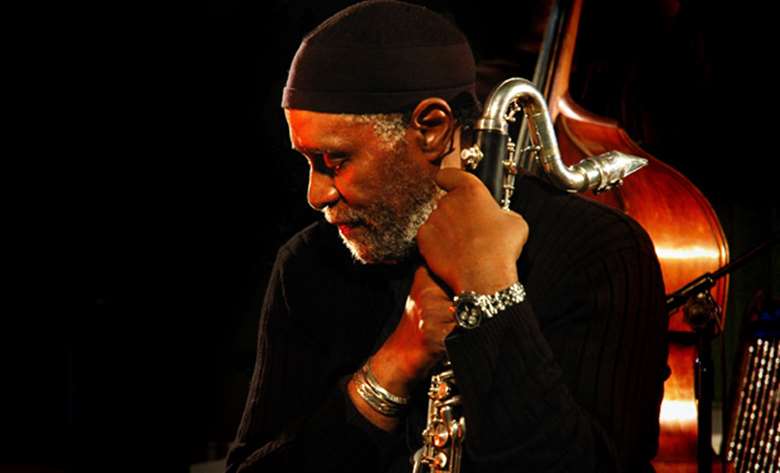Bennie Maupin evergreen and engerised at Ronnie Scott’s
Friday, November 28, 2014
Playing the night after the close of the London Jazz Festival may be the shortest of short straws for many musicians fearful of possible audience exhaustion following ten days of gigs.

Yet the sizeable crowd drawn by multi-reedist Bennie Maupin attests to both his pulling power and the unquenchable thirst of punters, some of whom may have still been lapping up the memory of Charles Lloyd’s celestial session at the Barbican the evening before. Maupin’s place in history, in any case, is by no means a drop in the ocean. For the generation of listeners who came into jazz via fusion he was the introduction to the bass clarinet, the still relatively uncommon instrument the 74 year-old Detroit native played so memorably on Herbie Hancock’s Headhunters as well as on the accomplished solo albums that came both before and after.
His pedigree is even richer though, for it was Maupin who brought much to Miles Davis’ Bitches Brew, and his opening salvo tonight, a gorgeous reprise of Joe Zawinul’s In A Silent Way, the sister album to the aforesaid electric pathfinder, establishes a clear historical gravitas for proceedings. Backed by an excellent British pick-up band – Rod Youngs [drums], Vidal Montgomery [bass] and Carl Orr [guitar] – Maupin plays the piece on soprano, vividly conveying the deep pathos and yearning poignancy of the anti-war anthem by way of spacious, full-bodied sustained notes that ebb to the most gentle of hushes. Later on an iconic Milesian reference surfaces again via a smartly swinging take on ‘All Blues’, but if that represents the more reflective, lyrical side of the leader his energetic, joyful character is not far away.
The band segues into boisterous high tempo funk in which Youngs’ and Montgomery’s experience of playing both soul and Caribbean flavoured music comes into its own, and the injection of a flighty, dancing aggression into the downbeat draws a hearty cheer from a responsive audience. Switching to tenor, Maupin has a pinched, quite high tone that cuts through a dry, tight ensemble sound, which is given a pleasingly scratchy, grainy quality by some of Orr’s fuller power chords, but when he moves to the bass clarinet elsewhere in the set he creates the kind of sensual gurgle that recalls the singers who held down the low end lines in ‘50s barbershop vocal groups. Having said that, the percussion played by all members of the ensemble – on the skins of the kit; the body of the bass; the neck of the guitar; the keys of the horn – momentarily turns the stage into a smilingly subversive drum circle.
While Maupin originals such as ‘See The Positive’ serve notice of his ability to compose as well as improvise it must be said that, clad in a dark jacket and Afro-Asian skullcap, he has the unforced charisma given to one who has covered much cultural and stylistic ground in an eventful life. He makes a point not often made – that the seminal bebop revolution started with Lester Young rather than Charlie Parker – and takes time to pay tribute to another musician, the great pianist and Parker sideman, Walter Bishop Jnr, whose name is not mentioned too much these days. All the young British members of the band, as well as the audience, seem to appreciate the opportunity to engage with Maupin, an elder whose influence should not be overlooked.
– Kevin Le Gendre